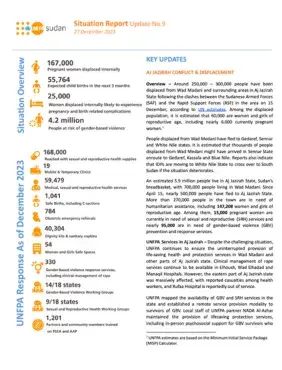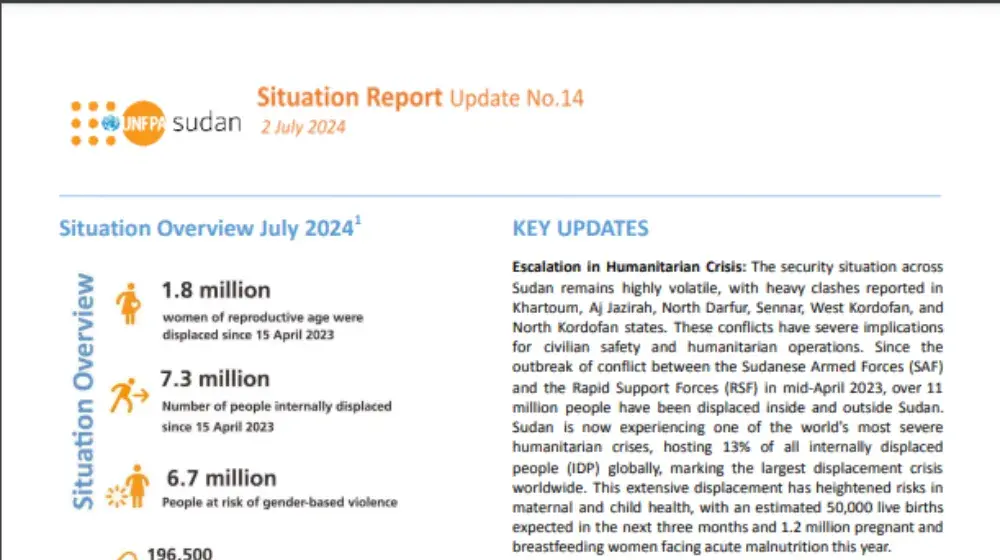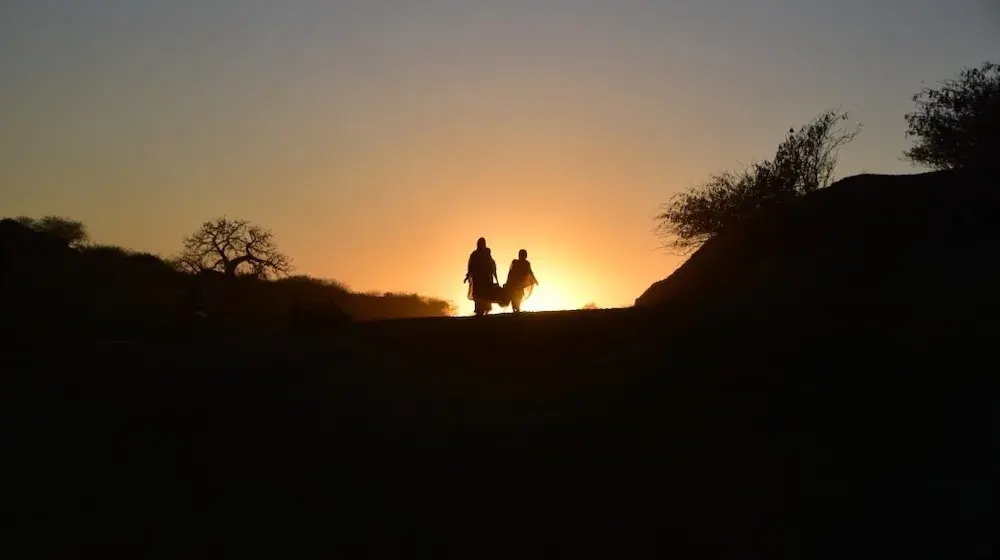KEY UPDATES
AJ JAZIRAH CONFLICT & DISPLACEMENT
Overview – Around 250,000 – 300,000 people have been displaced from Wad Madani and surrounding areas in Aj Jazirah State following the clashes between the Sudanese Armed Forces (SAF) and the Rapid Support Forces (RSF) in the area on 15 December, according to UN estimates. Among the displaced population, it is estimated that 60,000 are women and girls of reproductive age, including nearly 6,000 currently pregnant women.
People displaced from Wad Medani have fled to Gedaref, Sennar and White Nile states. It is estimated that thousands of people displaced from Wad Medani might have arrived in Sennar State enroute to Gedaref, Kassala and Blue Nile. Reports also indicate that IDPs are moving to White Nile State to cross over to South Sudan if the situation deteriorates.
An estimated 5.9 million people live in Aj Jazirah State, Sudan’s breadbasket, with 700,000 people living in Wad Madani. Since April 15, nearly 500,000 people have fled to Aj Jazirah State.
More than 270,000 people in the town are in need of humanitarian assistance, including 147,208 women and girls of reproductive age. Among them, 15,000 pregnant women are currently in need of sexual and reproductive (SRH) services and nearly 95,000 are in need of gender-based violence (GBV) prevention and response services.
UNFPA Services in Aj Jazirah – Despite the challenging situation, UNFPA continues to ensure the uninterrupted provision of life-saving health and protection services in Wad Madani and other parts of Aj Jazirah state. Clinical management of rape services continue to be available in Elhoush, Wad Elhadad and Manaqil Hospitals. However, the eastern part of Aj Jazirah state was massively affected, with reported casualties among health workers, and Rufaa Hospital is reportedly out of service.
UNFPA mapped the availability of GBV and SRH services in the state and established a remote service provision modality to survivors of GBV. Local staff of UNFPA partner NADA Al-Azhar maintained the provision of lifesaving protection services, including in-person psychosocial support for GBV survivors who reported to UNFPA-supported facilities in Hasahisa, as well as remote support to survivors who could not access the facilities.
Additionally, UNFPA continued to provide remote technical support to GBV case managers and social workers managing GBV cases, including guidance on remote service delivery, dealing with child and male survivors, as well as self-care.




